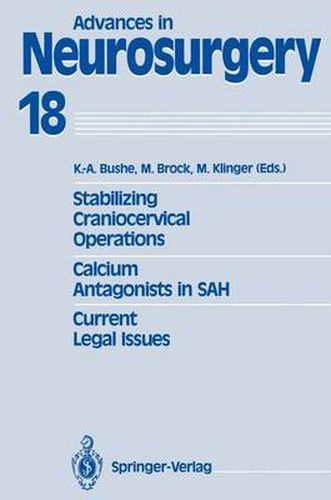Readings Newsletter
Become a Readings Member to make your shopping experience even easier.
Sign in or sign up for free!
You’re not far away from qualifying for FREE standard shipping within Australia
You’ve qualified for FREE standard shipping within Australia
The cart is loading…






This title is printed to order. This book may have been self-published. If so, we cannot guarantee the quality of the content. In the main most books will have gone through the editing process however some may not. We therefore suggest that you be aware of this before ordering this book. If in doubt check either the author or publisher’s details as we are unable to accept any returns unless they are faulty. Please contact us if you have any questions.
Demands on a Neurosurgeon Under Routine Clinical Conditions’ Hardly any other field of surgery requires such meticulous asepsis. No other field requires such a protection of the tissue and such reliable hemostasis. No one will question that neurosurgery makes exceedingly high demands. However, the degree of the demands on the personal ity of the surgeon who has to carry out very serious operations to the exclusion of all others and has little opportuinity to recover psycholog ically by working on simpler cases is concealed from the outer world. The mental strain which the coworkers and staff have to tolerate may not be denied . So wrote Wilhelm Tonnis in 1939. Although fifty years have now elapsed, his appraisal is still relevant today - hence my intention to discuss the everyday demands placed on neurosurgeons. My aim is not self-glorification to engender sympathy; rather it is to highlight the effects and repercussions of such demands for the well-being of the patients entrusted to us. The major onerous demands include: - those in the operating theater - those resulting from staff problems in nursing - those resulting from legal developments - those resulting from the increasing administrative tasks that cost valuable time and energy which are lost to our actual work in look ing after patients: science and research also suffer from this. I shall not go into the latter point within this preface. Let me first turn to the strains occurring in the operating theater.
$9.00 standard shipping within Australia
FREE standard shipping within Australia for orders over $100.00
Express & International shipping calculated at checkout
This title is printed to order. This book may have been self-published. If so, we cannot guarantee the quality of the content. In the main most books will have gone through the editing process however some may not. We therefore suggest that you be aware of this before ordering this book. If in doubt check either the author or publisher’s details as we are unable to accept any returns unless they are faulty. Please contact us if you have any questions.
Demands on a Neurosurgeon Under Routine Clinical Conditions’ Hardly any other field of surgery requires such meticulous asepsis. No other field requires such a protection of the tissue and such reliable hemostasis. No one will question that neurosurgery makes exceedingly high demands. However, the degree of the demands on the personal ity of the surgeon who has to carry out very serious operations to the exclusion of all others and has little opportuinity to recover psycholog ically by working on simpler cases is concealed from the outer world. The mental strain which the coworkers and staff have to tolerate may not be denied . So wrote Wilhelm Tonnis in 1939. Although fifty years have now elapsed, his appraisal is still relevant today - hence my intention to discuss the everyday demands placed on neurosurgeons. My aim is not self-glorification to engender sympathy; rather it is to highlight the effects and repercussions of such demands for the well-being of the patients entrusted to us. The major onerous demands include: - those in the operating theater - those resulting from staff problems in nursing - those resulting from legal developments - those resulting from the increasing administrative tasks that cost valuable time and energy which are lost to our actual work in look ing after patients: science and research also suffer from this. I shall not go into the latter point within this preface. Let me first turn to the strains occurring in the operating theater.